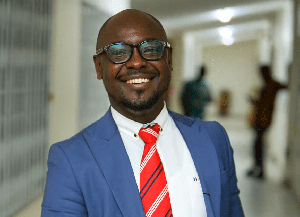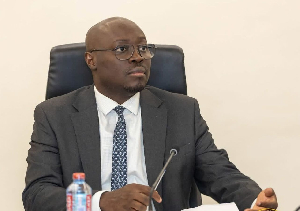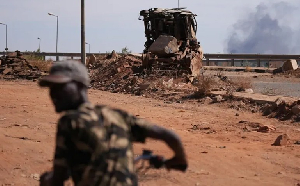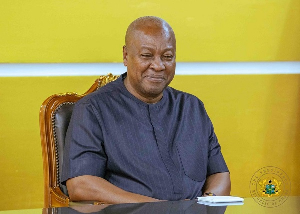Fast-rising rural banking services provider, Microfin Rural Bank (MRB), located at Gomoa Pomadze—and with branches in Kasoa and Mankessim—in the Central Region has been ranked 27th in the latest Ghana Club 100 listing.
The bank, by this feat, is considered among the top-30 prestigious and well-performing businesses in the country and sits second in the rural banking space—all in its first-time appearance on the list.
“We are happy that what the bank has been doing for smallholder businesses and farmers within its catchment area has been recognized. This is great for us because it is our first time of featuring on the list.
Next time, we hope to go further down the list to be among the top-10 prestigious businesses in the country and also top the rural banking list,” an elated Dr. Victor Antwi, board chairman of the bank, told the B&FT in an interview after the awards event in Accra.
He added: “We are so happy about this award and it means so much for us. The bank has made so much investments into ICT in its quest to bring up businesses and trying to develop and reach out to the smallholder trader and farmer who is at the corner of every district within our operational area.”
In keeping the momentum, the board chairman indicated that MRB will continue to motivate its staff in terms of capacity-building and also relook at its strategies to see how best the bank could reach out to more people in need of its support.
To the bank’s customers and shareholders, Dr. Antwi said the award should urge them on to do more with the bank.
“We want them to understand that all their investments have gone a long way to impact the lives and businesses of others, hence this recognition,” he told the B&FT.
He continued: “Our shareholders should have faith in the bank and bring in more people so we can extend our reach so as to contribute to the socio-economic development of the rural economy and the country in general.
Now, the confidence is there for people to see that MRB is the bank to go with. As a bank, we keep improving on our ICT and human resource base in the quest to make banking easy and convenient to people in the rural areas.”
According to Dr. Antwi, MRB is focused on providing access to finance for small businesses, farmers and petty traders in every corner and community that it operates, and believes that despite the impressive performance so far, there was more room for improvement, going forward.
“We are proud to be contributing to the growth of the banking industry, in terms of inclusive financing, to help bank the unbanked in society,” he emphasized.
Dr. Antwi congratulated the staff of MRB, whom, he stressed, have done so well to keep the bank’s indicators right to meet the standard of the central bank, the GIPC and corporate Ghana as a whole.
Bank’s ability to handle gov’t funds for rural projects
According to the board chairman, MRB has shown strong growth and competence over the course of its five years of operation to supervise government’s fund for rural-based areas should such funds be channeled through the bank.
Dr. Antwi said it was about time the government kept faith with RCBs on such a course as it will enhance the economic impact of such projects on the rural communities.
This is what we’ve been yearning for that government projects should have faith in rural and community banks in Ghana, and especially MRB, to invest funds for such rural-based projects.
We have our funds though, but there is the need for us to have some of these government funds which we can leverage to reach out to more people,” he told the B&FT.
Dr. Antwi said with such funds, RCBs could, for instance, reach out to farmers to produce more and form the production base so that 1D1F factories established within the various districts can function properly, and ultimately help cut down on imports.
He indicated: “With government project, it tells you where the funds should get to, but we can do that while blending it with accelerating financial inclusion.
For instance, we can use the priority areas for the funds as entry points and then spread it to other areas. For the 1D1F, these companies will rely on producers and as a bank, we are already supporting some businesses to produce.”
Business News of Wednesday, 28 November 2018
Source: Patrick Paintsil
Microfin Rural Bank ranked 27th on Ghana Club 100
Entertainment












